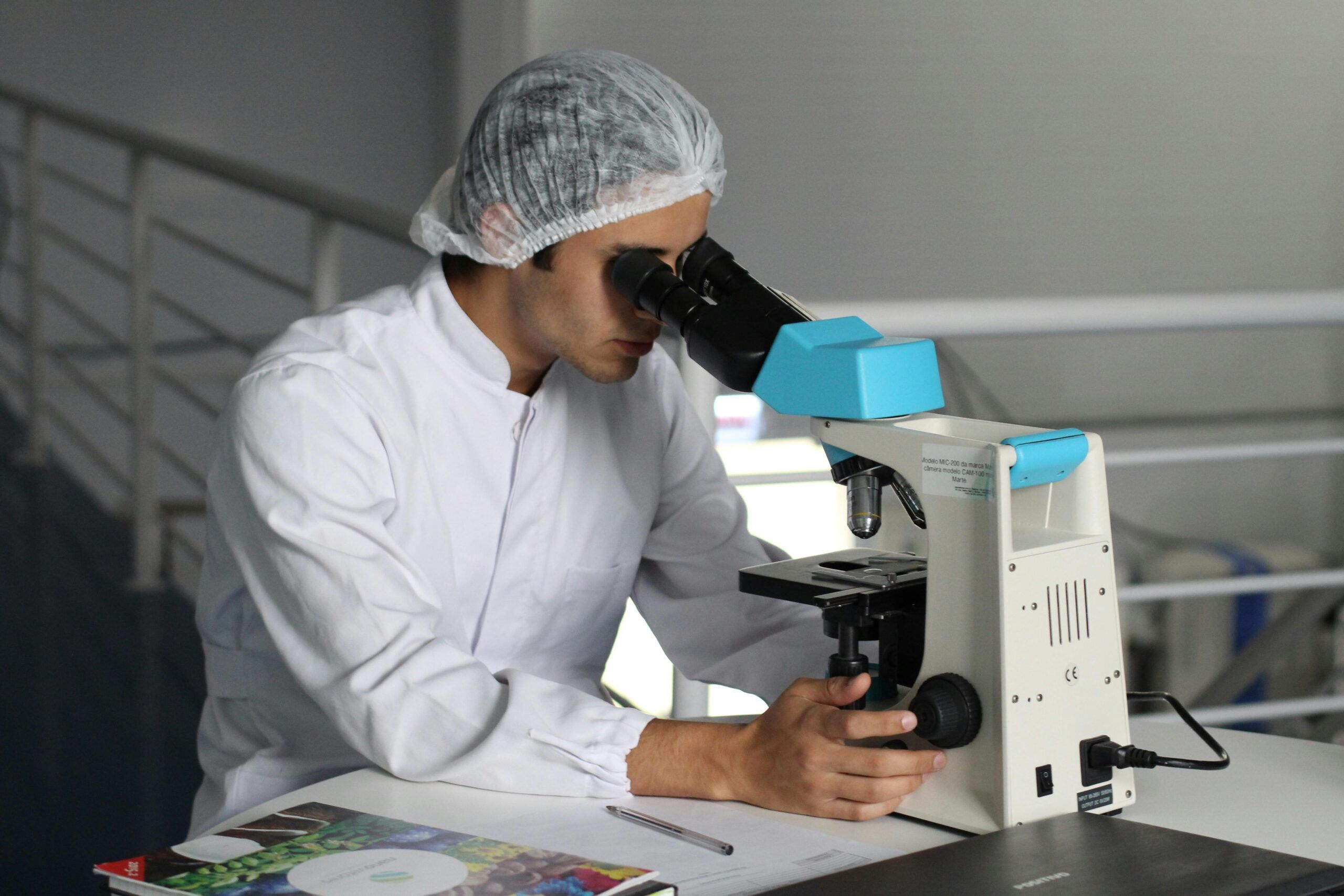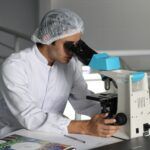Professor Vasili Hauryliuk is research team manager of the Molecular Enzymology Group at the Department of Experimental Medical Science at Lund University. His research group works on structural and functional characterizing of molecular mechanisms of bacterial antiphage immunity.
Professor Vasili Hauryliuk leads the Molecular Enzymology group at the Department of Experimental Medical Science at Lund University. The Hauryliuk lab uses a combination of microbiological, biochemical and structural approaches to study mechanisms of how bacteria defend against their viruses, bacteriophages. Prof. Hauryliuk obtained his PhD in 2008 at Uppsala University, Sweden. His scientific contributions were recognized though the Ragnar Söderberg fellowship in Medicine (2014), the Swedish Fernström Prize (Fernströmpriset) (2019) and Göran Gustafssonpriset (2024).
The lab is based in the Faculty of Medicine of Lund University, in the Department of Experimental Medical Sciences (EMV), for more information see https://portal.research.lu.se/en/persons/vasili-hauryliuk.
Duties
The tasks as a postdoctoral researcher mainly involve conducting research. Teaching may be part of the work duties, but no more than a fifth of the working time. Within the framework of the employment, there must be an opportunity for three weeks of university pedagogical trainin.
Bacteria are constantly predated by viruses, bacteriophages. To resist predation, bacteria employ numerous antiphage defence systems, with the most famous being CRISPR-Cas. In our lab we discover new systems with bioinformatics, validate them in microbiological assays and then characterise the mechanisms of defence on the molecular level. Currently the lab is working on many (>10) novel, as-yet-unpublished antiphage defence systems. The focus of this project would be to uncover their molecular workings through integrated structure-functional approach combining phage microbiology, biochemistry and structural biology. The project is supervised by Vasili Hauryliuk (PI) as well as Gemma Atkinson (co-PI, structural bioinformatics, Lund University) and Pontus Gourdon (co-PI, cryo-EM, Lund University and University of Copenhagen).
Qualification and requirements
- Candidate needs to have a maximum 8 years after a doctoral degree (PhD), as required by the project Grant Agreement signed with the European Commission,
- At least one original publication in a peer-reviewed journal,
- A background in the relevant methods,
- A complete application package submitted through the AMBER portal (including CV and detailed research plan), and finally,
- Strict compliance with the MSCA mobility rule that the researcher must not have resided or carried out his/her main activity (work, studies, etc.) in the host organisation’scountry for more than twelve months in the three years immediately prior to the call deadline.
- PhD or equivalent foreign degree within molecular biology, biochemistry, structural biology or a related subject. The PhD must be completed no later than the time the employment decision is made,
- Good ability to develop and conduct research of good quality,
- Pedagogical ability,
- A publication record in international journals,
- Proficiency in spoken and written English Experience in standard molecular biology techniques, such as molecular cloning,
- competence in at least one of the key approaches to be used in this interdisciplinary project, that is phage microbiology and/or structural biology, specifically cryo-EM.
Personal skills are of importance. It is crucial that you are structured in your work and can work independently and have good social skills.
The assessment of applicants will be based primarily on their scientific merit and potential as researchers. Particular emphasis will be placed on scientific ability within the subject area.
Benefits
Lund University is a governmental authority, which means you get special benefits, generous holidays and a favorable occupational pension. We also have a flexible time agreement that creates good conditions for a balance between work and leisure.
Read more on the university’s website about being employed at Lund University, Work with us.
The position is a fixed-term position of three years, 100% with start date on 2026-01-01 or as agreed. Employment at Lund University is conducted in Sweden, you are therefore expected to be able to perform your work on site in Lund.
The employment is limited to maximum three years, according to the collective agreement on fixed-term employment as a postdoctoral researcher (the Swedish Employers’ Association). A postdoctoral position is intended as an initial step in a career and as an opportunity to further deepen and broaden research expertise.
Organization/Company – Lunds universitet
Research field –
Research profile –
Country – Sweden
Application Deadline – 8 Sep 2025 – 21:59 (UTC)
More information: Euraxess.







Leave a Reply